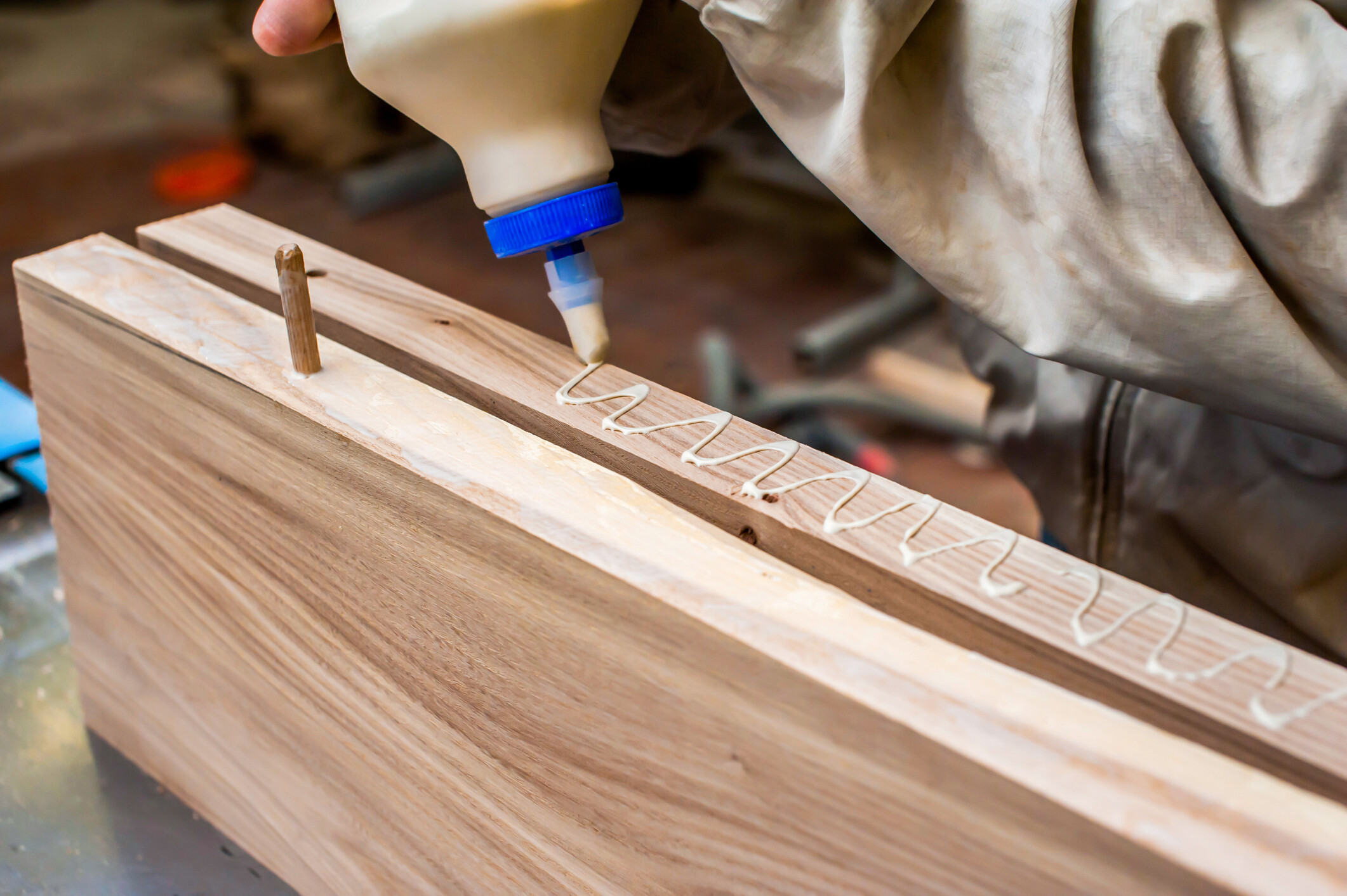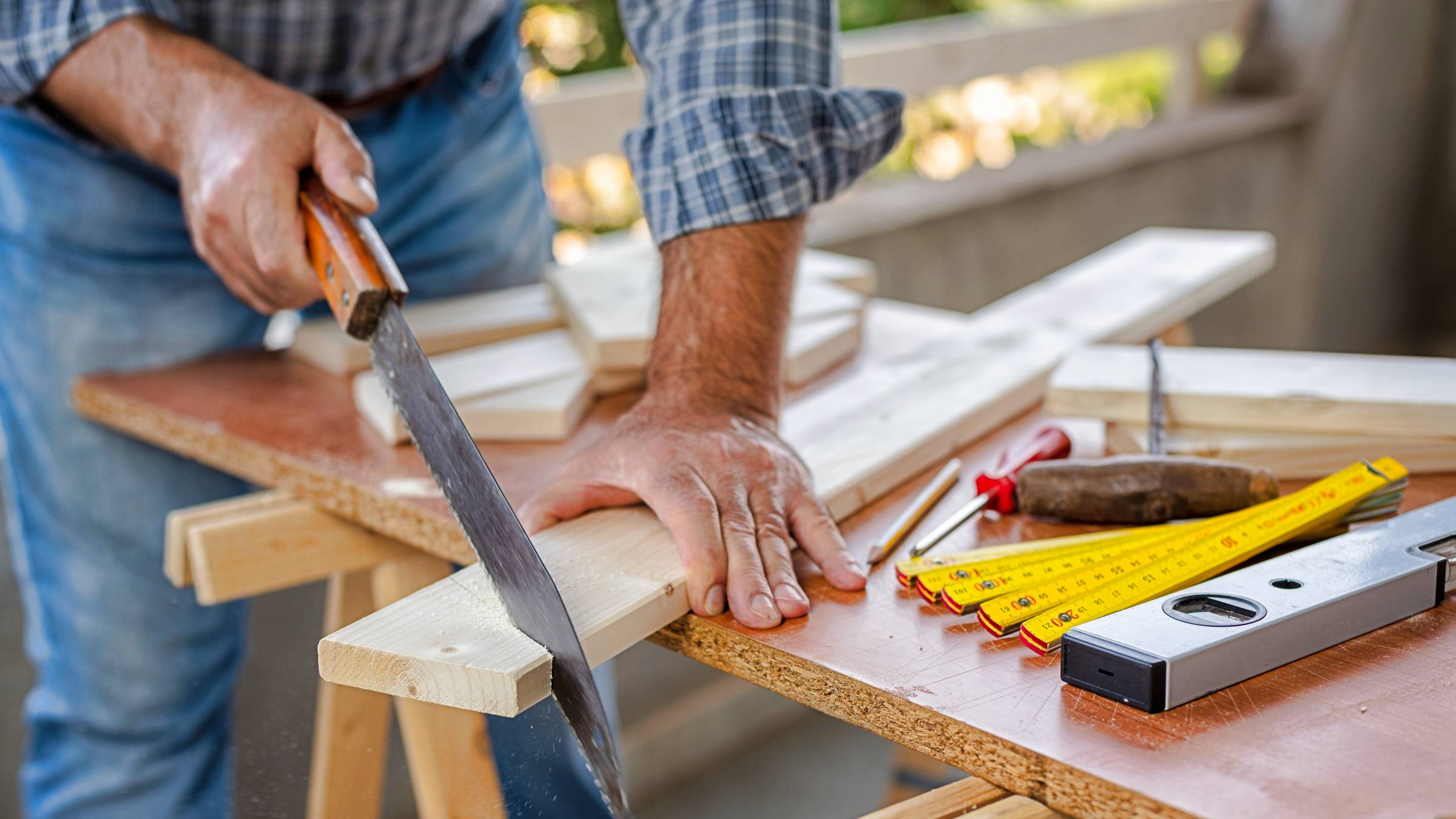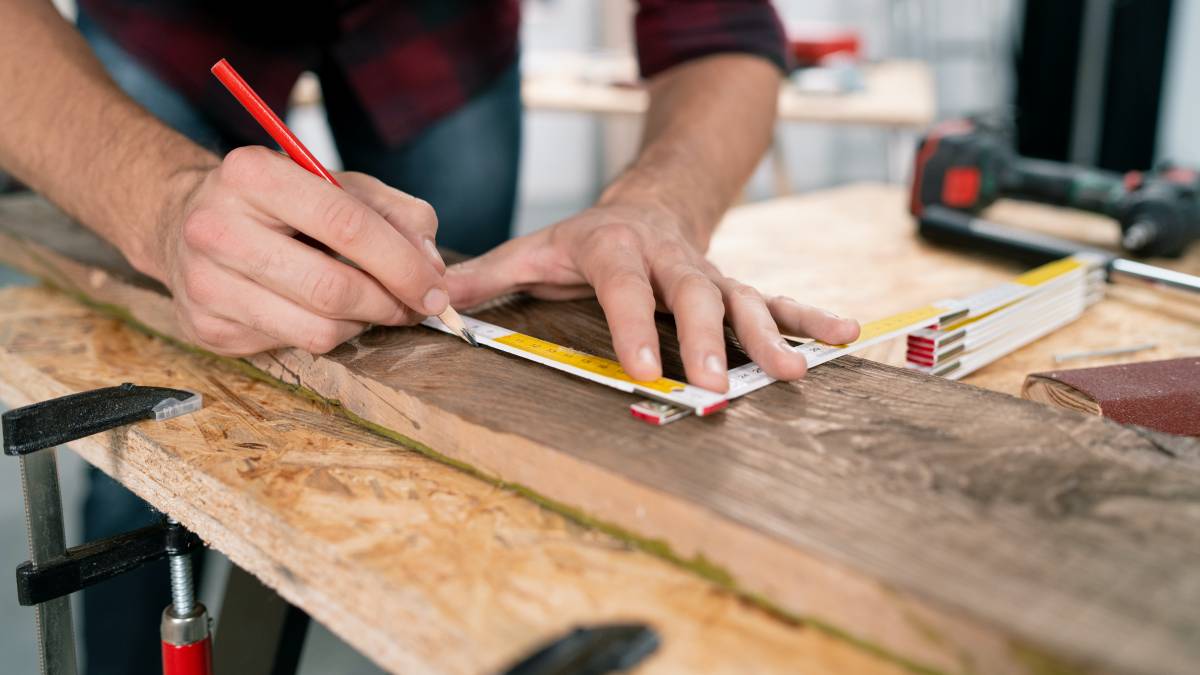- Home/
- Comparisons/
- Carpentry/
- Joiner vs Carpenter
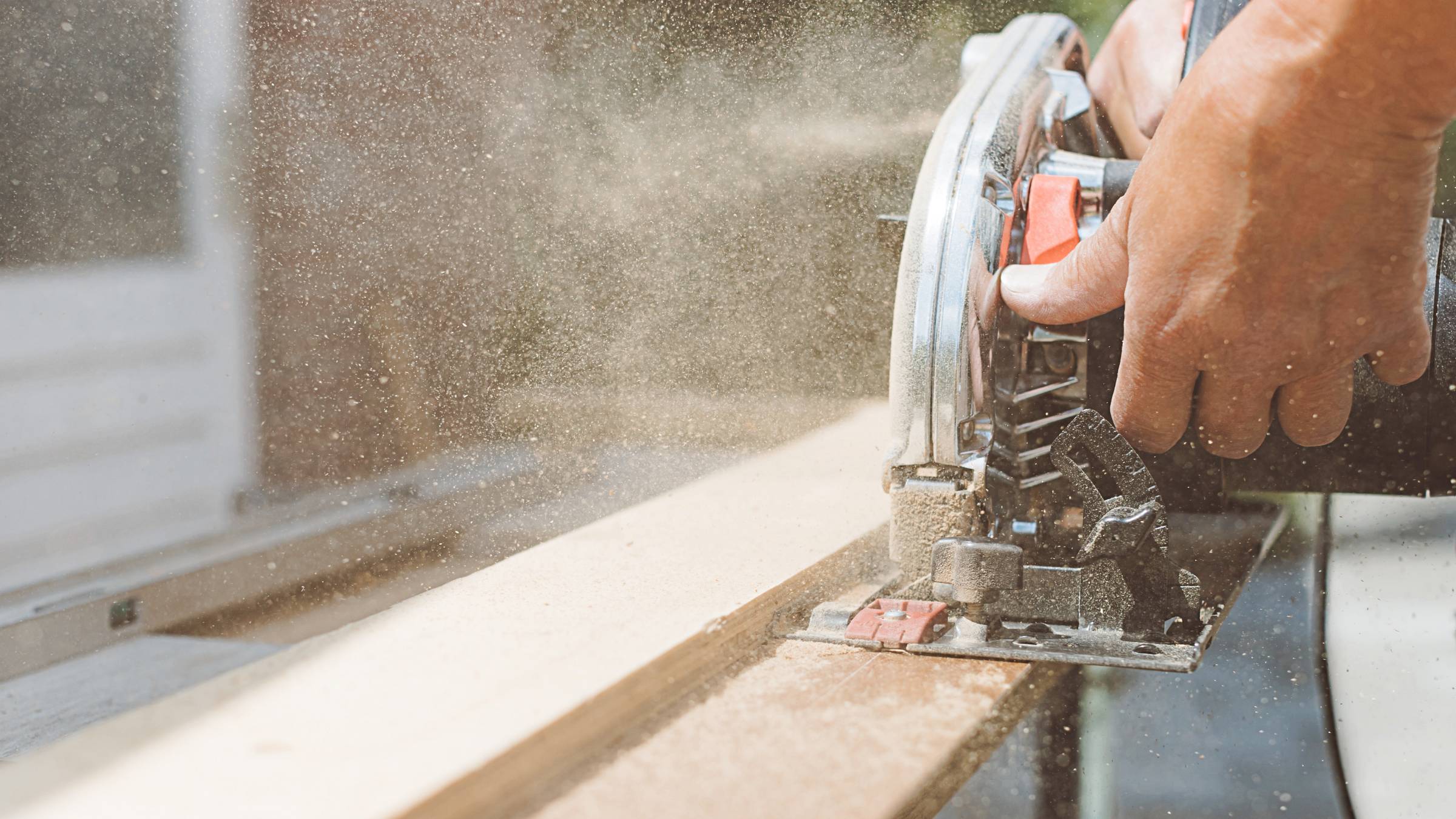
Joiner vs carpenter: What’s the difference?
Comparing joiners and carpenters based on cost, expertise, and more
Hire a joiner or carpenterLast Updated on
Key Facts
- A joiner is a woodworking expert specialising in interlocking small building components and applying fine techniques to create intricate designs and precise fittings for furniture and frames.
- A carpenter is a wood craftsman with vast knowledge and experience in larger, more complex projects. These include installing, repairing, and replacing roofing, floors, and stairs.
In the construction industry, two of the most confusing terms are ‘joiners’ and ‘carpenters.’ Both work with timber products and use similar tools, so they must be referring to the same job.
In reality, they do not. Knowing a joiner vs a carpenter matters for any homeowner who usually has specific requirements for installation and remodelling. This joinery vs carpentry comparison guide can help you find the right woodworking specialist for the project you have in mind.
What is a joiner?
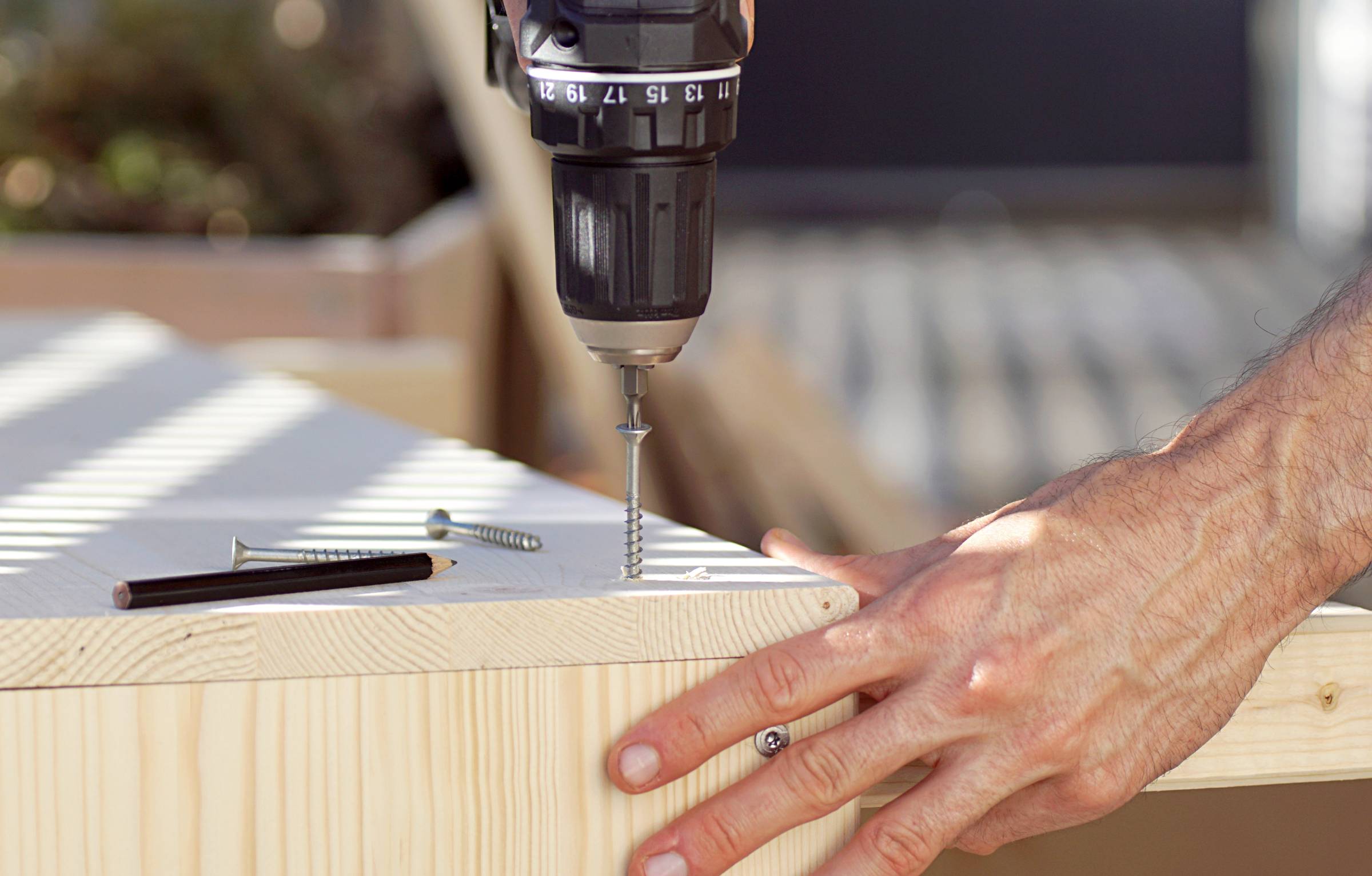
What is the meaning of joinery? What do joiners do? As its name suggests, a joiner is a skilled craftsman who connects or joins wood to create or complete building components. These range from studwork to door and window frames and fitted kitchens.
They are artistic with a keen eye for detail, which is reflected in their architectural millwork, particularly moulding, panelling, and trimming.
What is a carpenter?
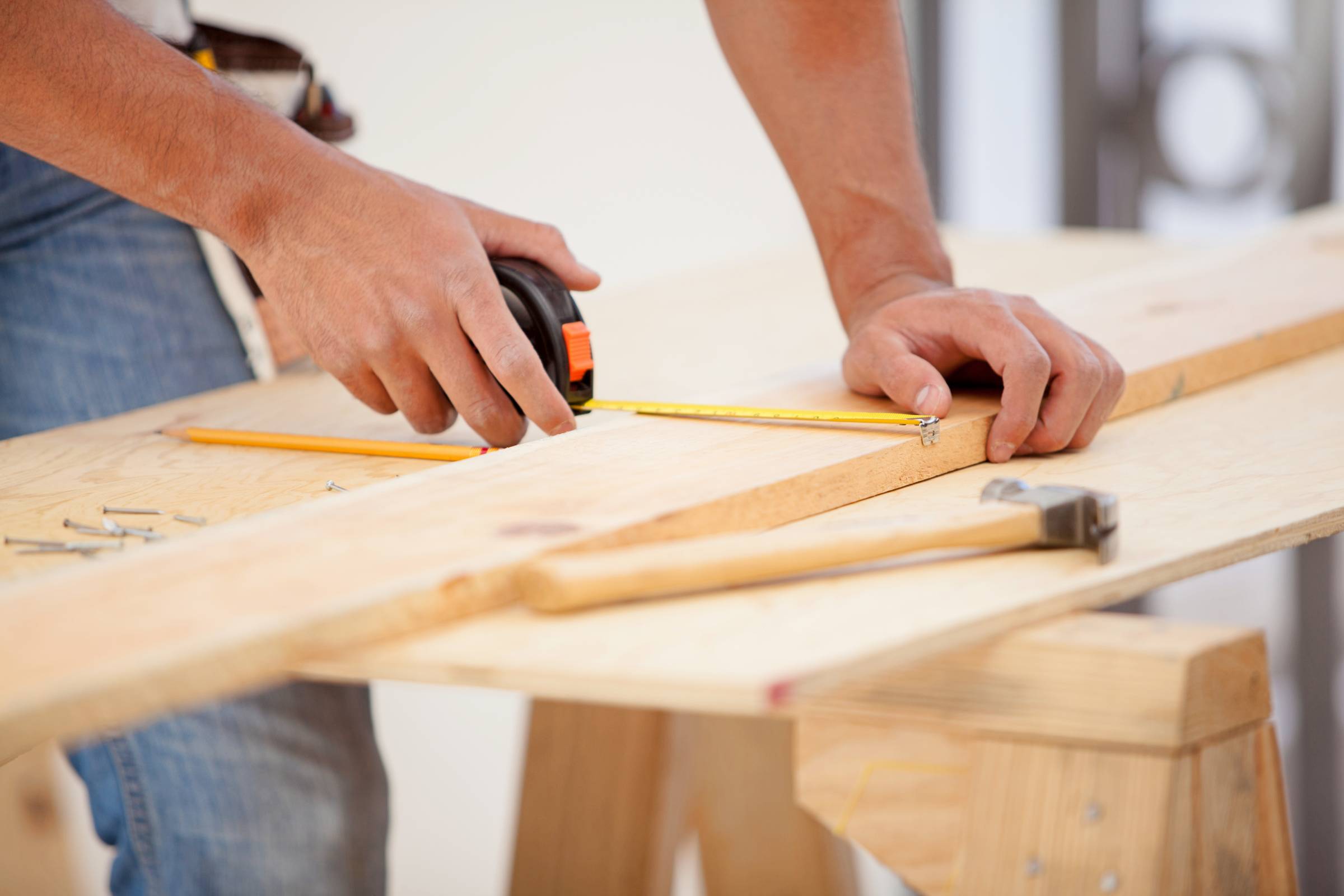
What do carpenters do? Their work encompasses a broad range of tasks. Usually, these include creating architectural details and erecting buildings’ structural components.
They construct, repair, and install more complex and larger building elements on site, such as roof trusses and floors. Unlike joiners, carpenters are commonly involved in various stages of a construction project, from the initial framing to the final finishing touches.
Joiner vs carpenter: Which is better for your needs?

The definitions above might help clarify the distinctions between these two disciplines, but they are often not enough to help you choose. For example, who should build your furniture? Should they work together on the project? And how much does each cost? Read on to answer these questions.
In terms of project scope
The biggest difference between a carpenter and a joiner is their project scope. Carpenters deal with the more complicated and larger elements; joiners focus on the small but intricate ones.
With this in mind, a carpenter installs building structures on construction sites, such as roofs, partition walls, and skirting boards. Carpentry also involves fitting floors, fixing windows, and creating staircases.
Meanwhile, joiners handle door and window frames and fitted furniture like tables and chairs. They take care of anything that involves glueing, fastening, or integrating smaller pieces of wood.
In many instances, though, carpenters and joiners work together. For instance, a carpentry expert would remove a house’s old kitchen tops and cabinets, while a joiner would build new shelves and doors. Joinery specialists might design a specific roofing element to complete or strengthen the truss.
In terms of tool and material range
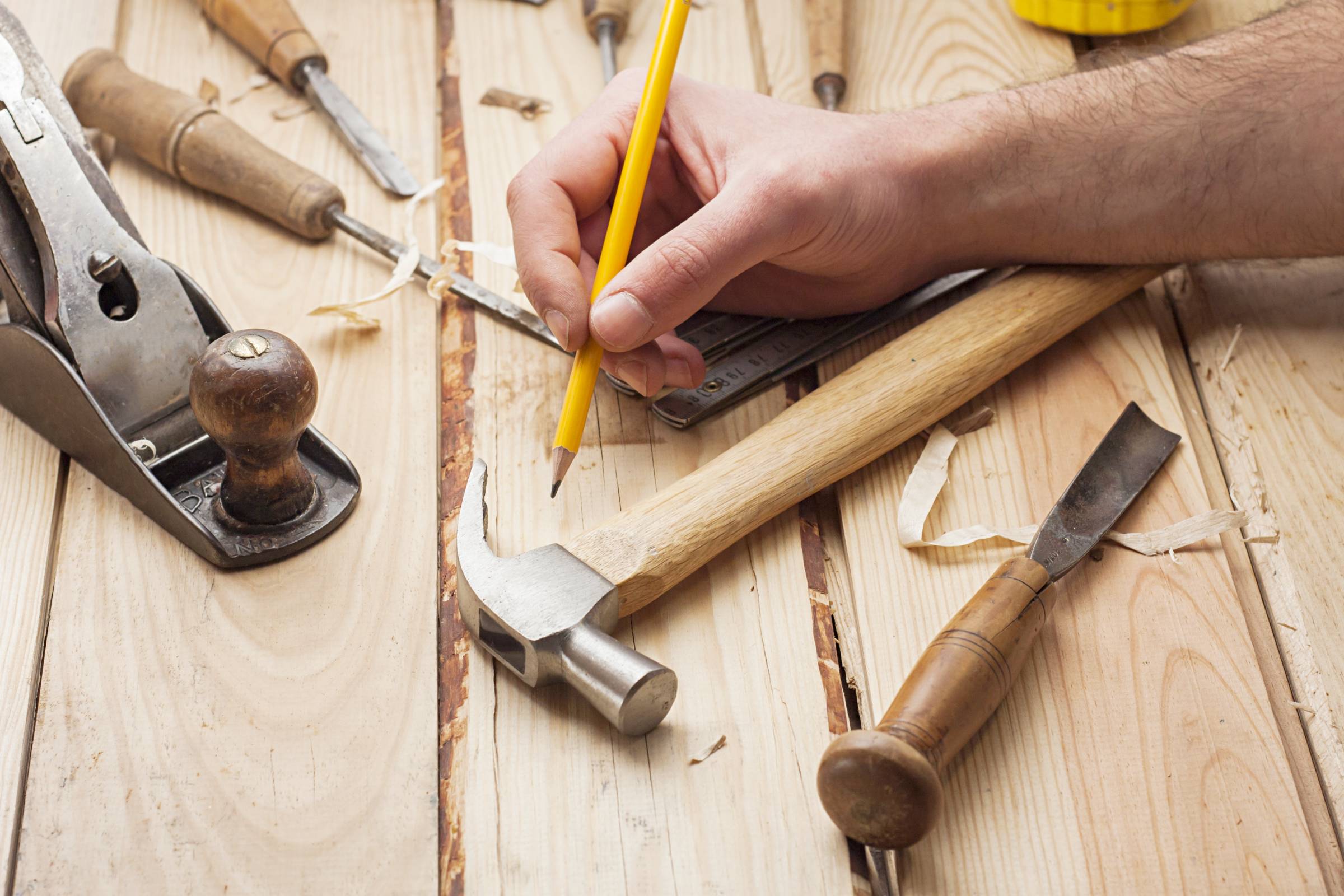
These two professions can also differ in the tools and materials they use. Because joiners deal with more intricate work, they need more hand tools such as chisels, sanding wheels, circular saws, hammers, and drills. They also use wood routers for defining decorative edges or building bespoke furniture and moulding.
On the other hand, carpenters use the same hand and power tools but operate large machinery. They also deal with other materials, like metal fasteners, nails, and screws.
In terms of training and skill level
Carpenters and joiners possess distinct skills and training within the construction trades:
A good joiner specialises in woodworking techniques. Their job demands a high level of craftsmanship and attention to detail because they must meet exact specifications and ensure a perfect fit.
Carpenters often work on larger projects requiring a deep understanding of structural integrity and load-bearing capacities.
In Australia, entry requirements for a joiner or carpenter can vary between states or territories, as well as the company they want to be part of.
Often, they must have completed Year 10 before they can work. They must also become an apprentice for three to four years to earn a Certificate III in Joinery or Carpentry (or any equivalent certification).
If they wish to work on a construction site, they must obtain the white card or construction induction card, which means more training to be eligible for it.
In terms of finish quality
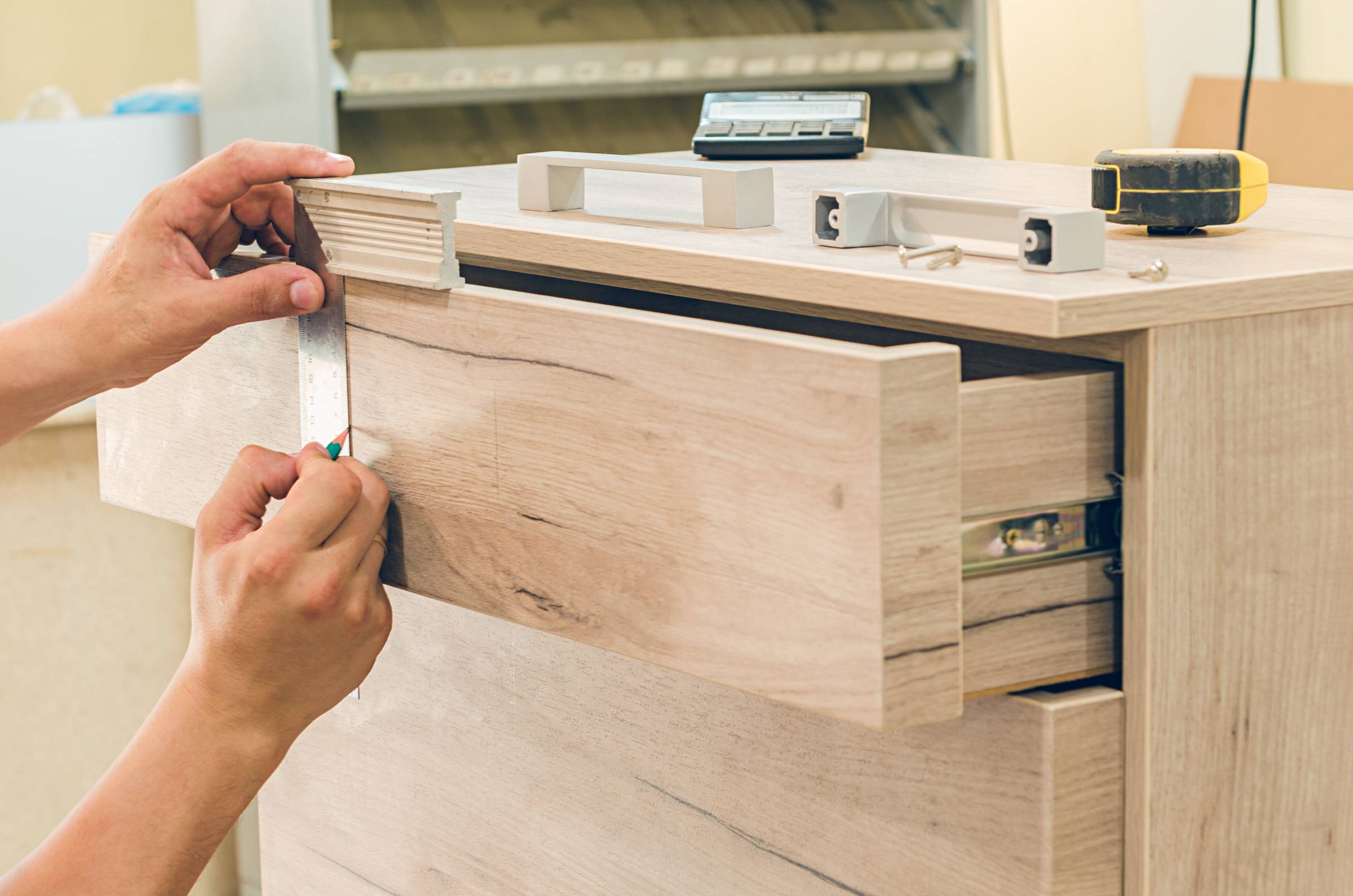
Many factors affect the finish quality of these two trades. These include the wood used, the preferred finish, and the craftsman’s skills.
Overall, though, joiners usually have a higher finish quality than carpenters. Because precision matters, they take more time to create a smooth, flawless look for the wooden fixtures.
With carpentry, the structural integrity, fitting, and assembly of larger elements precede everything else. In certain situations, finish quality is the last on the list, especially when pressed for time or short on budget.
In terms of service cost
At $60 per hour, most carpenters are usually more affordable to hire than joiners. As mentioned, the latter possess more specialised skills. The job also demands more time and effort to conceptualise and complete, especially since they normally work in a small workshop.
The beginning rate of a joinery expert is $130 per hour. However, carpenters can also work on large projects and structures so that they can quote for almost $2,500.
In terms of availability
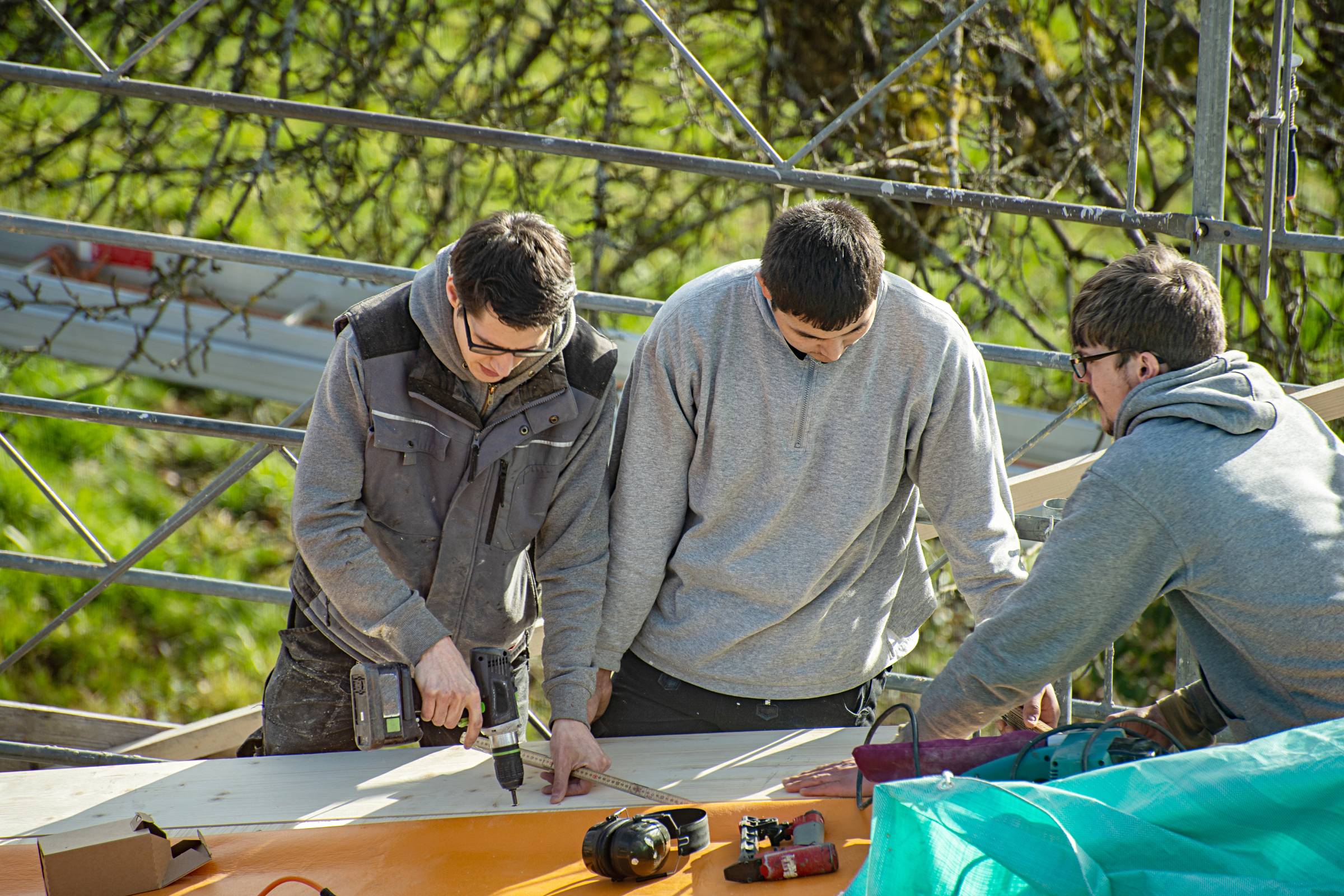
You are likely to find more carpenters than joiners for the following reasons:
Carpentry is easier to get into than joinery.
Not all new-building or renovation projects require a joiner.
With more construction sites in Australia, you might also see more carpenters work.
However, the demand for carpenters and joiners could grow by 11.7% by 2024. It could be because people want more custom furniture, a personalised look for their properties, or bespoke remodelling to increase their house’s market value.
Achieve your dream home with Airtasker
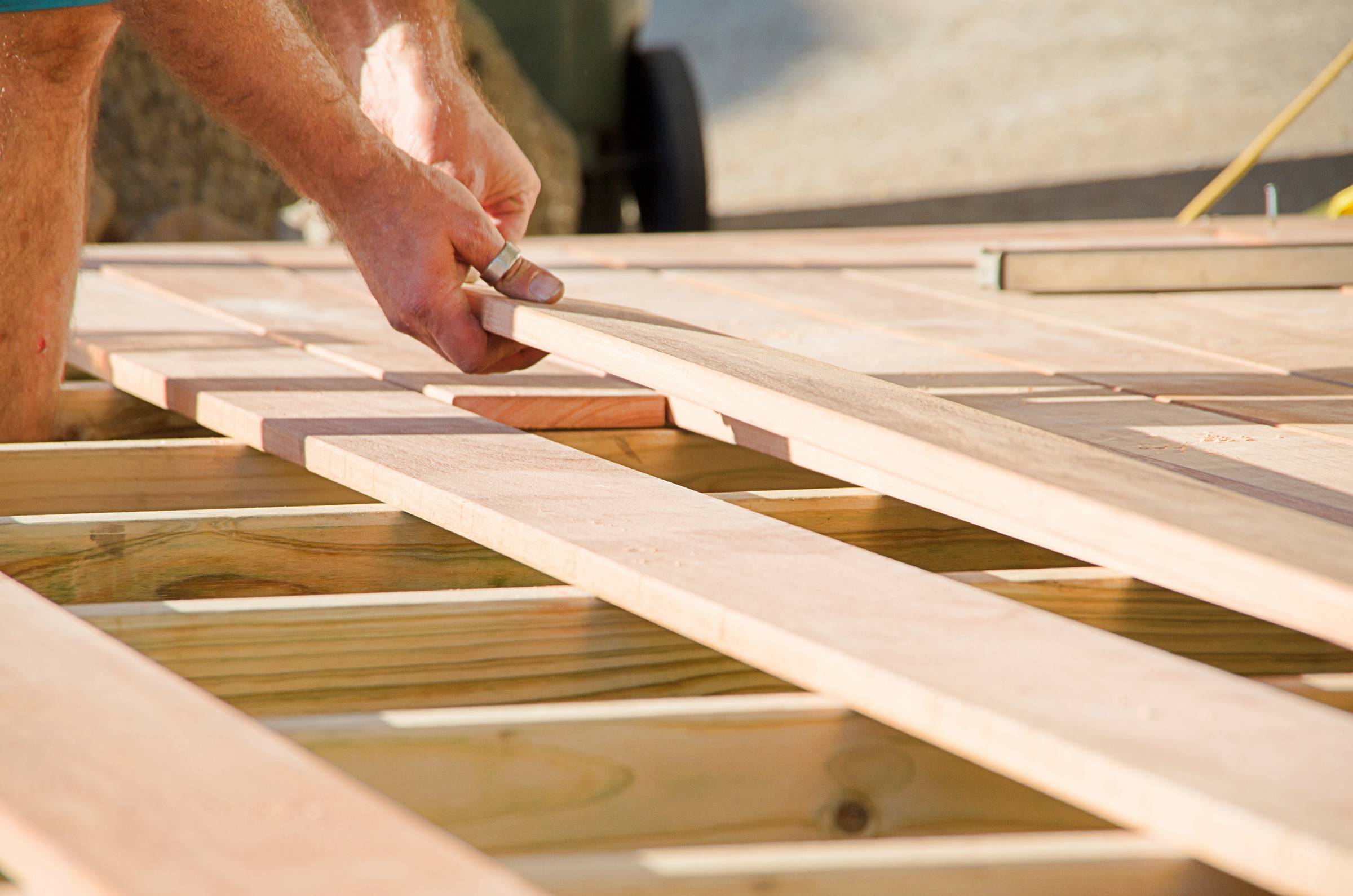
Should you go for a carpenter or a joiner? It all depends on many factors, including what matters most to you. Regardless of your choice, you can use Airtasker to find a nearby woodworker in only three steps:
Open a free account.
Create a task with all the essential details. Examples are your budget, timeline, and preferred kind of woodwork.
Post a task and wait for proposals and quotes from Taskers. You can also narrow down your options or contact your preferred professional directly.
Wood is a challenging material to work with. Whether you want a joiner, a carpenter, or both, hire the best through Airtasker.
Joiner vs carpenter
| Joiner |
Carpenter |
|
|
Project Scope |
Usually deals with smaller woodworking projects |
Handles bigger, more complex projects |
|
Tool and Material Range |
Work often with hand and power tools |
Can deal with heavy or big machinery |
|
Training and Skill Level |
Specialises in ornate woodworking, such as moulding and panelling |
Trained in a broad range of wood-based tasks |
|
Finish Quality |
Needs to produce woodwork with an excellent finish |
Prioritises structural integrity rather than finish quality |
|
Service Cost |
Often more expensive to hire than carpenters |
Is cheaper but could charge over $1,000 for a big project |
FAQs on joiners and carpenters
Although joinery and carpentry are wood-based construction trades, they are not interchangeable. A joiner does more intricate work than a carpenter, trained with larger, more complicated projects.
Whether you hire a carpenter or joiner for bespoke woodwork depends on the specific task. They might share similar skills, but you need a joiner if you want more ornate or precise details.
A joiner might avoid using metal fasteners, screws, and nails because they can be unattractive and detract from the overall appearance of the finished product. Also, brads and other small nails might be too weak to hold joints under much stress. Lastly, metal dowels or fasteners can expand and contract at a different rate than wood, causing the joint to loosen over time.
Joinery work can vary widely. Although most are general joiners, others specialise in staircases, fitted floors, and frames of doors and windows.
When considering carpentry services, it's important to choose the right expert for the job. Whether you're in need of a professional in Sydney, Melbourne, Brisbane, Geelong, or the Gold Coast, Airtasker connects you with qualified carpenters. Check out the following city-specific services for more details:
- Carpentry services in Sydney
- Carpentry services in Melbourne
- Carpentry services in Brisbane
- Carpentry services in Geelong
- Carpentry services in Gold Coast
Explore your local options to find the perfect carpenter near you.
Find carpenters, fast
Post a task
Related articles
Related price guides

